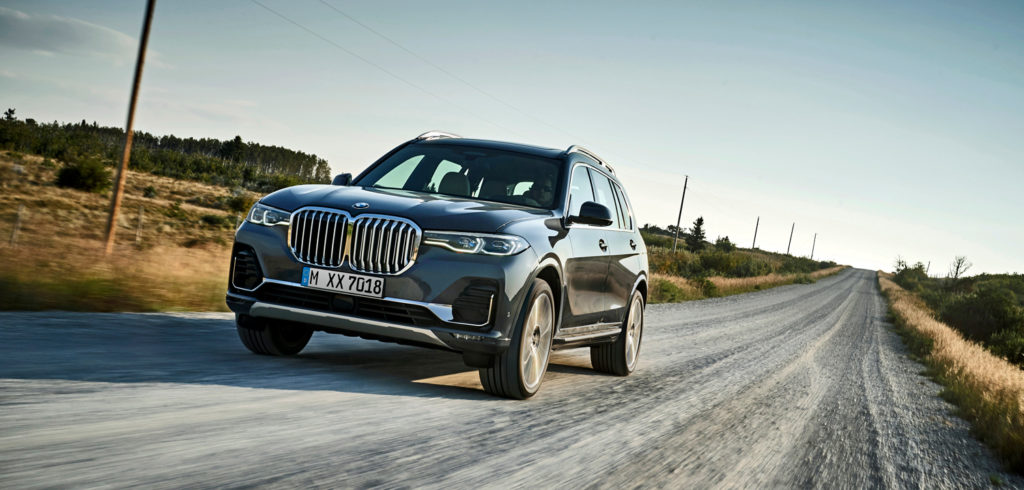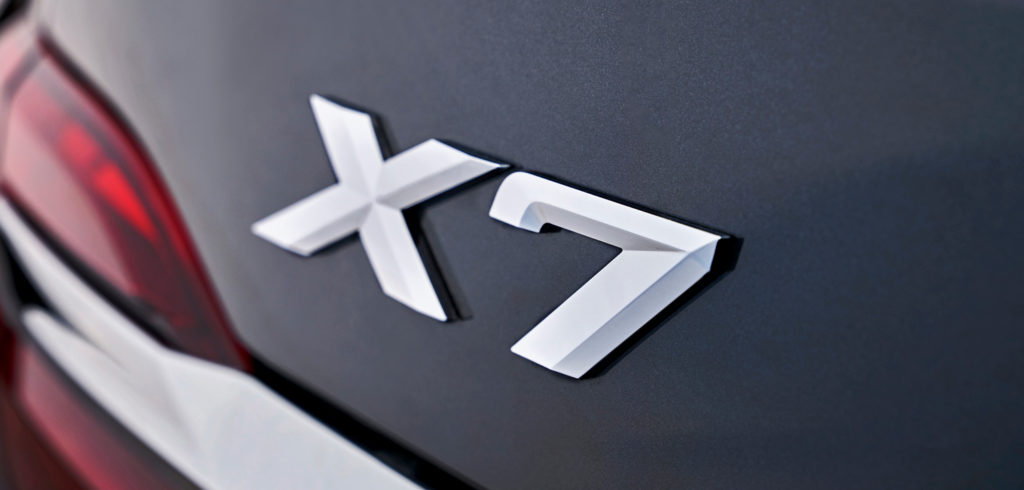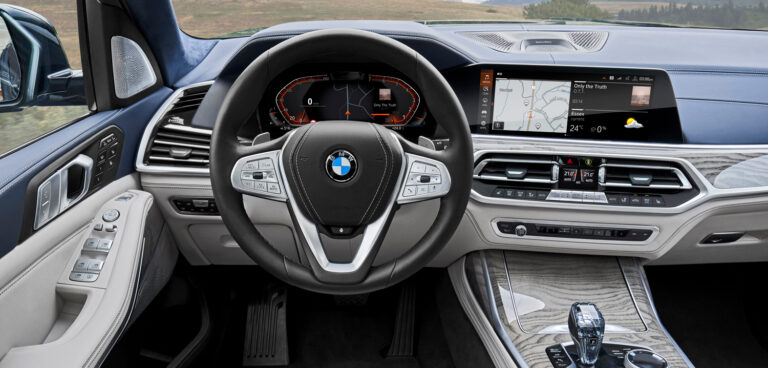BMW has introduced its largest model in the BMW X line-up, the X7. Available in three different powertrain options from launch – a six-cylinder gasoline engine and two six-cylinder diesels – the SUV aims to combine powertrain and chassis technology.
The engine line-up includes a newly developed six-cylinder in-line gasoline unit for the BMW X7 xDrive40i, and a pair of six-cylinder in-line diesels to power the BMW X7 xDrive30d and BMW X7 M50d M Performance models.
Gasoline and diesel units are turbocharged and are aligned to the German OEM’s eight-speed Steptronic transmission, which has a wider gear ratio spread and new control electronics. This reduces engine speeds, particularly in higher gears, which helps to increase overall efficiency.
BMW’s xDrive30d variant will produce 265ps at 620Nm, meaning it can hit 100km/h in 7 seconds and reach 226km/h. The M50d model has a power output of 400ps and 760Nm of peak torque, meaning a 0-100km/h of 5.4 seconds and a 250km/h top speed.
Finally, the xDrive40i will develop 340ps and 450Nm of torque on its way to 100km/h in 6.1 seconds. The gasoline engine will push the X7 to a top speed of 244km/h.




